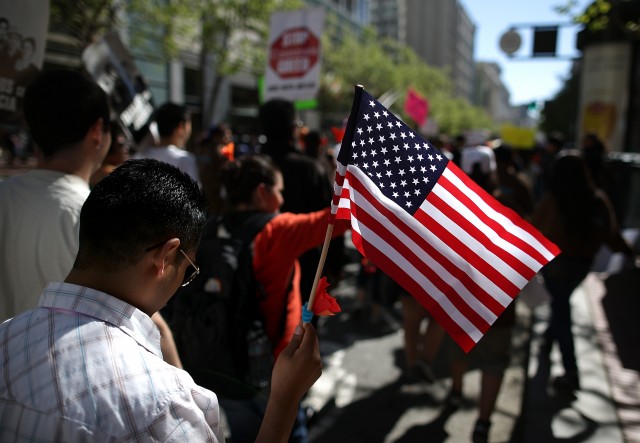But Reyes doesn’t want to talk on tape about a more recent experience -- when a local restaurant refused to pay him.
“You have to think about what you talk about because it could lead to problems tomorrow,” he says. “I’m not going to say it’s Mafia, but the communities are small and everyone knows each other. All the restaurants know each other. If I have a problem with one, they will tell another.”
A survey by the National Employment Law Project found that 76 percent of undocumented immigrants have worked without being paid and 37 percent received less than minimum wage.
Under the California laws that went into effect this year, those workers have new protections. Now a business that reports an undocumented worker to authorities as retaliation can lose its license. An individual that retaliates in this way can face a criminal extortion charge.
The bills passed without opposition from business groups. Immigrant rights attorney Chris Ho supported the legislation.
“It only makes sense to have all workers, undocumented or not, on an equal legal footing because, if it were otherwise, then unscrupulous employers would have a financial incentive to seek out undocumented workers because they could abuse those workers with impunity,” Ho says.
In June, the California Supreme Court ruled that undocumented workers can sue their employers, even if they used false papers to get the job. The case began when Vicente Salas sued the pool-cleaning company where he worked as a seasonal laborer for many years. He claimed he was not rehired because he filed a workers' compensation claim after getting hurt on the job.
Ho argued the case before the court.
“What the Salas decision does is to remove one very practical obstacle to people’s cases going forward, which is the employer argument that, well, since you got your job using a false ID, you are not entitled to these rights and remedies,” Ho says.
The pool-cleaning company countered that because Salas was never legally entitled to the job, he shouldn’t be able to sue. The company’s attorney, Arnie Wolf, says the court’s decision conflicts with federal immigration policy.
“I think for most people, unless you have got a strong ideological bent, the concept that a company could be liable for wrongfully failing to hire someone who is not even legally entitled to work in this country is absurd,” Wolf says.
He points to a 12-year old U.S. Supreme Court ruling that prohibits the National Labor Relations Board from awarding back pay to undocumented workers.
“By allowing an undocumented worker to get compensatory damages, you are condoning violations of federal immigration policy and that’s wrong,” he says.
The agricultural and construction industries that rely on undocumented workers have stayed on the sidelines, both on the court and legislative front.
Immigrant rights advocates, meanwhile, hope the changes in the law will lead more workers to speak out. Workers like Juan Perez. His boss threatened him with a gun when Perez confronted him about getting paid. Perez then filed a complaint with state officials.
“Even though I am undocumented, it doesn’t mean they can do what they want with me. Threaten me. Or discriminate against me," he says. "There are laws for everyone. All over the world. When you don’t speak up, your voice isn’t heard."
But Perez says many people are still silent. As record numbers of immigrants are deported, many fear speaking out -- even as new laws ensure they are protected when they do.
